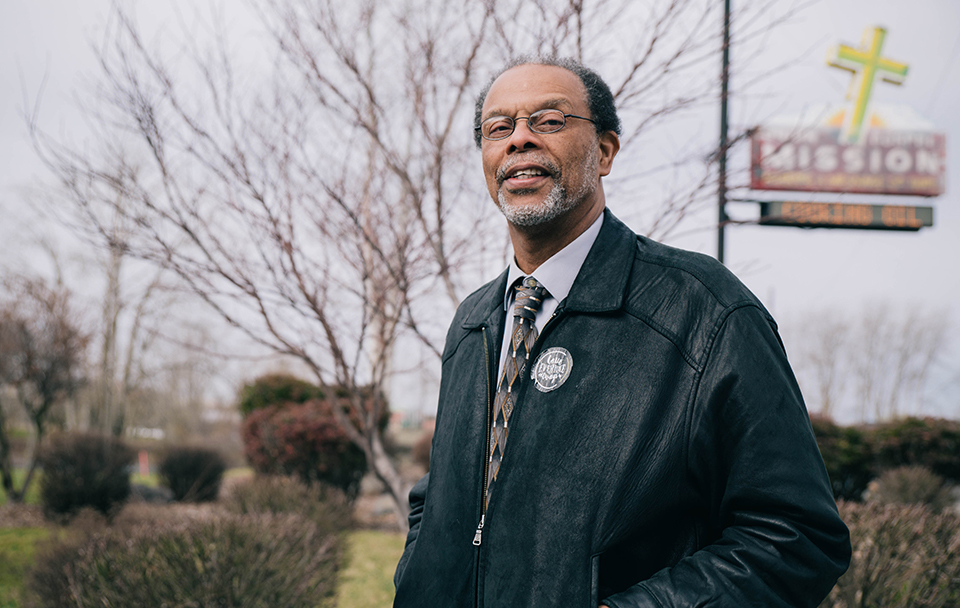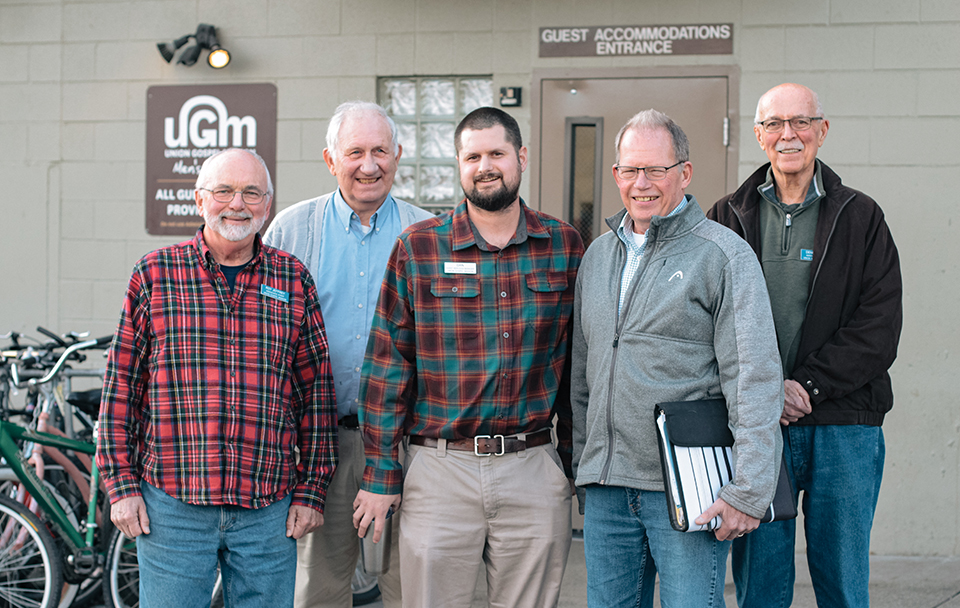2 min read
Gospel-Centered from the Start
“Let us hold unswervingly to the hope we profess, for He Who promised is faithful…Jesus Christ is the same yesterday, today, and forever.” (Hebrews...
“If we claim to be without sin, we deceive ourselves and the truth is not in us” – 1 John 1:8.
I have pretty much always been a good girl. I grew up in a Christian home. I grew up going to church. I had a charm bracelet with the ten commandments, and I memorized them. I was baptized in my pink sweater set when I was 8. I was terrified of getting in trouble, terrified of hell, terrified of getting left behind in the rapture, so I tried very hard to be good. 
In high school, I went to youth group and Campus Life. I didn’t party. I didn’t drink. I didn’t smoke. I didn’t date. I didn’t dance. I didn’t cheat. I didn’t steal. Like the rich young ruler in the Bible, I might say to Jesus, I have kept all the commandments since my youth. (Well, except for that rebellious first year of college, but that was an aberration. Otherwise, my record is very good.)
I grew up to be a stay-at-home mom and home-school my children. I taught my kids to obey, to sit quietly in church and restaurants, not to swear or cheat or party or drink or gamble. I put a big emphasis on sexual purity, and I prayed that they would grow up to love God, to be the men and women God wanted them to be. I also prayed (somewhat secretly) that they would have something I didn’t, that they would feel loved by God, that they would know joy.
I still go to church every Sunday. (Pretty much.) I am rarely ever frivolous with my money. I work for a Christian organization that cares for the poor. I do morning devotions. I read the Bible. I pray. I try to be a good wife, a good mother, a good friend.
Confession #1: Much of the time, I am not very grateful for my salvation because much of the time I don’t really think I need saving.
You have to admit, my report card looks pretty good.
Unless, of course, you compare me to Jesus.
You know how some sermon illustrations really stick with you? Well, I remember this one from years ago: The pastor told us to imagine a contest where the goal was to jump from a pier in Long Beach, California to Santa Catalina Island – a distance of 22 miles. Some people could jump way farther than others. Let’s say you had some Olympic long jumpers in the crowd, and they set a new world record at 29 feet, 8 inches. Amazing! Unless you were trying to jump 22 miles. In that case, whether you jumped 30 feet or 30 inches wouldn’t matter much. You would fall way short.

I know in my head that my trying to earn God’s favor is a lot like me trying to jump from Long Beach to Catalina Island. Still, I persist in my striving because performance is ingrained in me. And change is hard.
I relate to all the wrong characters in the Bible: the older brother who resents the party being thrown for the prodigal who has come home; Martha running around trying to please God with all my good works, instead of sitting at Jesus’ feet to listen; the Pharisee who stood next to the tax collector comparing himself and feeling pretty pleased with how good he was; the laborers who worked all day in the vineyard and were angry that the workers who came after them received the same pay.
I have worked very, very hard to be good. On the one hand, that’s not a bad thing. In and of itself. Jesus says to his disciples, “Why do you call me Lord, Lord, and yet, you do not do what I say?” God wants us to obey, but he also wants us to recognize that we can do nothing without him. My works will not earn me a place in heaven, and they won’t make God love me. Even more than that, I am incapable of truly good works without the Spirit living and working in me.
“I am the vine; you are the branches. If you remain in me and I in you, you will bear much fruit; apart from me you can do nothing” – John 15:5.
I have found at Christmastime (and periodically throughout the year), it’s a good idea for me to count not only my blessings, but my sins, my failings, to remind myself that I am very much in need of a Savior.
Confession #2: Comfort is an idol for me.
Often, when I am driving home from work, I have a vision in my head: Me, in my pajamas, lying on the couch, snuggled underneath a fuzzy blanket, next to the fire, watching my favorite show on Amazon Prime and eating nachos.
I love comfort. After a long day at work, I don’t want to see people. I don’t want to talk to people. I even get angry at the other drivers on the road standing in the way of my ability to get home in a speedy manner.
I love comfort food. For me, that’s macaroni and cheese, shepherd’s pie, barbecued burgers and chips, tostadas, nachos and ice cream. I am very susceptible to using food as a pathway to happiness. I can be very greedy when it comes to the last piece of cheesecake, and I always know which pizza slice is the biggest.

In his sermon, The Weight of Glory, C.S. Lewis addresses this tendency to seek comfort and pleasure: “It would seem that our Lord finds our desires not too strong, but too weak. We are half-hearted creatures, fooling about with drink and sex and ambition when infinite joy is offered us, like an ignorant child who wants to go on making mud pies in a slum because he cannot imagine what is meant by the offer of a holiday at the sea. We are far too easily pleased.”
Sometimes our idolatry may seem merely weak and vapid, but it can also turn vicious. In the first Lord of the Rings movie, The Fellowship of the Ring, there’s a scene where Bilbo, a frail, elderly hobbit briefly turns into a monster when faced with the prospect of his true desire, the ring.
That monster surfaces in me when something comes between me and my comfort.
When I admit my tendency to worship comfort, I see my potential to become a monster, and I am reminded of my need for a Savior.
Confession #3: I envy people who are thin, who are rich, who are retired.
I know this is ugly as I write it, but I have to face it. I see other people with good things, and I wish they were mine. I wish that promotion, that car, that body were mine.
My world all too often – even as I do good things for others – revolves around me.
Confession #4: I hold grudges and I am slow to forgive.
Another parable where I relate to the wrong character is found in Matthew 18. The unmerciful servant is forgiven a great debt but will not forgive the much smaller debt of a fellow servant. This is me. I will go over and over a wrong committed against me, justifying my anger in my own mind. I need Christ working through me even to forgive the driver who cut me off in traffic.
This is not an exhaustive list of my sins. In fact, my “good girl list” skips over what Jesus calls the two greatest commandments: “‘Love the Lord your God with all your heart and with all your soul and with all your mind.’ This is the first and greatest commandment. And the second is like it: ‘Love your neighbor as yourself.’ All the Law and the Prophets hang on these two commandments” (Matthew 22:37-40).
Do I love God with all that is in me? Do I love my neighbor as much as I love myself? My previous confessions reveal that I do not.
When I minimize my sins and overestimate my goodness, I cheat myself of the love and power of the gospel.
Luke 7 tells the story of a Pharisee who invited Jesus to dinner. While they were dining, a woman “who lived a sinful life” came in, “stood behind Jesus, by his feet, crying and wetting his feet with her tears." She then dried his feet with her hair and poured perfume on them. The Pharisee was appalled and said to himself, “If this man really were a prophet, he would know who this woman is who is touching him.”
In response, Jesus tells a parable about two debtors; one was forgiven a great debt and the other only a small debt. Jesus asks the Pharisee, which debtor will love the moneylender more?

What this story tells me is that, occasionally, it’s a good idea for me to remember the size of my debt.
But that’s not the end of the story.
“If we confess our sins, he is faithful and just and will forgive us our sins and purify us from all unrighteousness” I John 1:9.
Once I’ve counted my sins, I need to let them go. To dwell on them is only to sin further. To demand a righteousness of myself that I cannot achieve is to diminish God's mercy, to insult his grace.
Dietrich Bonhoeffer describes the proper response In his book, Life Together: "He who is alone with his sin is utterly alone… But it is the grace of the gospel, which is so hard for the pious to understand, that confronts us with the truth and says: You are a sinner, a great, desperate sinner; now come as the sinner you are, to the God who loves you.”
When we come to Jesus, confess our sins and acknowledge him as Lord, he changes us.

2 min read
“Let us hold unswervingly to the hope we profess, for He Who promised is faithful…Jesus Christ is the same yesterday, today, and forever.” (Hebrews...

9 min read
To celebrate 75 years of serving the Inland Northwest, we are spending the year remembering our history and the faithfulness that built us and...

2 min read
In 2026, Union Gospel Mission Inland Northwest is approaching our 75th Anniversary! This is a milestone that invites gratitude and reflection, and...

The already brimming schedules and to-do lists most of us carry are magnified and exacerbated during the holidays. Even as the American “holiday...

In honor of Black History Month, we’re turning the blog over to three men for whom we have tremendous respect.

During my first couple of weeks as the Staff Writer at Union Gospel Mission, I was tasked with helping interview seven volunteer case managers who...